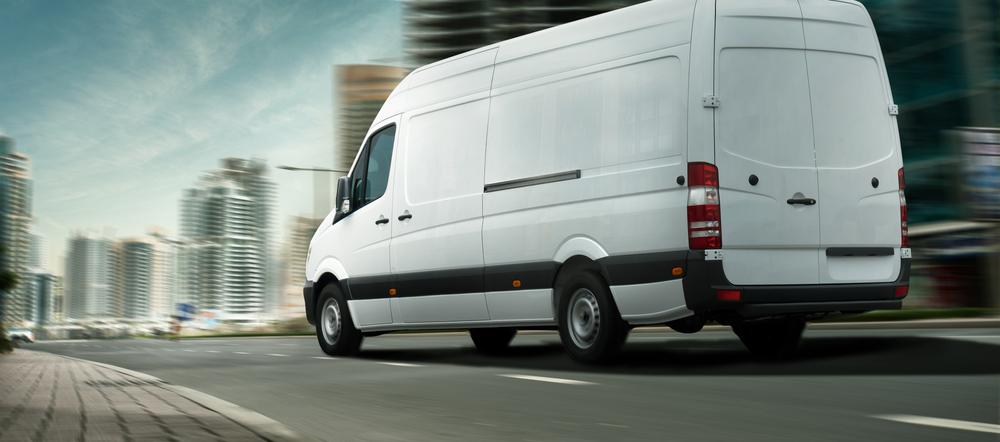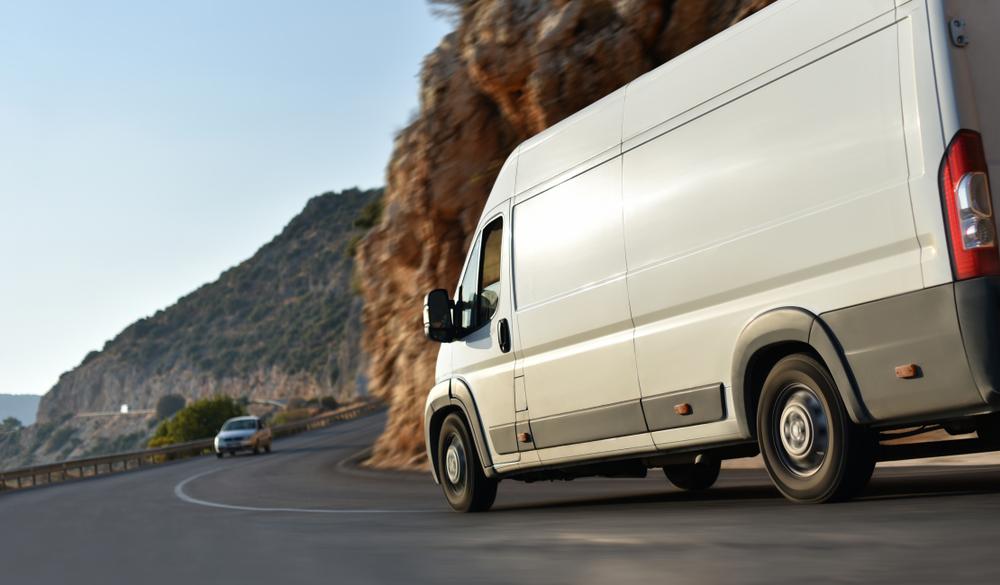
When transporting goods over land, there are two main common types of enclosed vehicles utilized - cargo vans and dry vans.
While both are used to carry items from point A to point B, there are key differences between these vehicles in terms of capacity, capabilities, and suitability for certain transportation needs.
Understanding these distinctions is crucial for logistics professionals, fleet managers, and businesses to select the appropriate type of van for their cargo requirements.
This blog post aims to provide clarity on cargo vans versus dry vans through comparing their defining characteristics, common applications, advantages and limitations.

What is a Cargo Van?
A cargo van is a type of vehicle based on a light commercial vehicle chassis. Also sometimes called a box truck or panel van, a cargo van is distinguished by its enclosed cargo area that can be accessed from the rear or side doors.
Most cargo vans have a relatively short wheelbase and are intended for simple loading and unloading of goods. Common characteristics include a spacious yet compact cargo box, minimal insulation or climate control, and a carrying capacity ranging from 800 to 1,200 pounds.
With their versatile design, cargo vans are suitable for a wide array of uses like delivery services, work trucks for tradespeople, and for small businesses transportation needs. Their small size and maneuverability allows for easy navigation through urban areas.
However, cargo vans do have limitations in maximum cargo volume and long-distance hauling due to lack of features like sleeper cabs.
Popular cargo van models include the Ford Transit, Dodge ProMaster City, Ram ProMaster, and Mercedes-Benz Sprinter. These full-size vans offer enhanced payloads and specifications over compact vans.
Aftermarket upfits are also common to modify cargo vans for refrigeration, security systems, and specialized trade applications. Overall, cargo vans are an affordable and efficient option for local delivery services and small business logistics within a metropolitan region.
What About a Dry Van?
A dry van truck is a semi-trailer truck configuration designed specifically for road transportation. Compared to a cargo van, a dry van offers a much larger cargo compartment that requires a semi-truck tractor unit for hauling.
The term "dry van" refers to the unrefrigerated enclosed trailer body with features like durable construction, heavy-duty axles/suspension, and effective weather sealing and insulation.
Due to their standardized dimensions regulated by authorities, dry vans can carry freight stacked to optimal capacity. Commonly found variants include straight trucks, rear-liftgate vans, and container chassis for shipping containers.
Shipping, retail, construction, and third-party logistics are major industries reliant on dry van transportation for domestic and international goods movements. Long-haul operations of hundreds to thousands of miles are routine and critical for supply chain efficiency.
Additional enhancements such as integrated tracking technologies, air ride suspension, and aerodynamic fairings demonstrate ongoing improvements. Dry vans are indispensable for the trucking industry and for large-scale commercial transportation leveraging high volume capacities over long distances.

Key Differences Between Cargo Van and Dry Van
The main distinctions between cargo vans and dry vans are cargo size and transportation suitability. Cargo vans have a weight capacity between 800-1,200 pounds, making them fit for small batches of products or localized shipping.
Dry vans can handle much larger payloads from 10,000-50,000+ pounds due to their larger trailer bodies built to highway vehicle standards, allowing them to transport a wide range of goods and building materials.
In terms of temperature control, most cargo vans lack refrigeration or environmental regulation beyond basic insulation and sealing, meaning they are only suitable for non-perishable products. Dry vans do not typically offer temperature control either, but refrigerated variants exist for temperature-sensitive freight.
Route distances also differ - cargo vans are best utilized within a few hours' drive for their day cabs while dry vans regularly complete multi-day transcontinental hauls with sleeper berths.
Costs compare as cargo vans are much more affordable to purchase and operate, albeit with a lower freight capacity.
With a tractor required, dry van transportation carries higher fixed and operating costs through greater fuel usage and driver wages over longer runs.
Similarities Between Cargo Van and Dry Van
Although cargo vans and dry vans have variations, they share core similarities as enclosed vehicles for freight mobility.
Both have barrier-protected interiors and rear/side access for loading various sized packaged or palletized goods.
Versatility is a notable shared trait as various wall and floor configurations allow flexible use of interior space.
Van designs also focus on security from weather, vibration, and damage risks inherent to surface transportation.
Finally, amenities such as radio communication, on-board navigation assist drivers in safely delivering shipments end-to-end as intended.
Factors to Consider When Choosing Between a Cargo Van and a Dry Van
There are several considerations trucking companies must weigh when selecting between cargo vans and dry vans.
- Cargo Type – Perishable, oversized, or high-volume items are better suited for dry van capacity with larger trailers and potential refrigeration for perishable products. General items in smaller batches suit cargo vans.
- Distance – Cargo vans cover up to a few hundred miles effectively while dry vans specialize in multi-day hauls up to cross-country distances.
- Budget – Cargo vans have lower acquisition and operating expenses versus dry vans which require a tractor unit investment and driver wages on longer trips.
- Load/Unload Equipment – Cargo vans generally load/unload by hand while dry vans interact with forklifts and cranes at shipping yards.
- Traffic Conditions – Cargo vans easily navigate urban areas but dry van road access depends on trailer size regulations and road quality over routes.
- Sustainability – Larger and consolidated dry van loads lower emissions impact per shipment mile compared to multiple short cargo van runs.

Future Trends and Innovations
The cargo van and dry van industries continue innovating to keep pace with evolving supply chain and sustainability demands.
Electrification is a hot area - electric cargo vans show promise for last-mile deliveries to reduce emissions in congested city centers.
Autonomous trucks may handle long dry van routes one day to address driver shortages. Satellite tracking plus predictive maintenance powered by IoT data improves fleet uptime.
And new materials make trailer bodies lighter to aid payloads and fuel economy. As supply chains become more digitized end-to-end, vans will integrate seamlessly with transportation management systems for superior visibility, planning and autonomous operations over coming decades.
Combined with emerging technologies, cargo and dry vans are well-positioned to grow their indispensable logistics roles sustainably into the future.
Final Thoughts
While cargo vans and dry vans both provide mobility of goods, understanding their inherent differences assists transportation and supply chain managers optimize operations. Cargo vans are a cost-effective solution within tight metro regions and for simple pickups/deliveries.
Yet for shipping larger, consolidated freight loads over long distances, dry van capacity and robust components prove more suitable for high-volume hauling of heavy loads on major routes.
Choosing the right van type requires analysis of cargo attributes and planned routes to determine specifications needed. As technologies mature, cargo and dry vans will further enhance productivity and environmental stewardship across industry.
With their versatile adaptability, vans will remain at the core of land transportation worldwide.
Thinking of relocating your vehicle across the country? At A1 Auto Transport, we specialize in long-distance car shipping servicesutilizing our fleet of enclosed dry vans. Dry vans are ideally suited for the type of multi day truck transportation we provide to customers moving from coast to coast.
With over a decade of experience coordinating car shipping logistics, you can trust A1 Auto Transport to safely deliver your vehicle using superior equipment and experienced drivers.
Get a free quote.






 Share on Facebook
Share on Facebook Share on LinkedIn
Share on LinkedIn Share on Twitter
Share on Twitter




 Google
Google  Instagram
Instagram  Trustpilot
Trustpilot 



